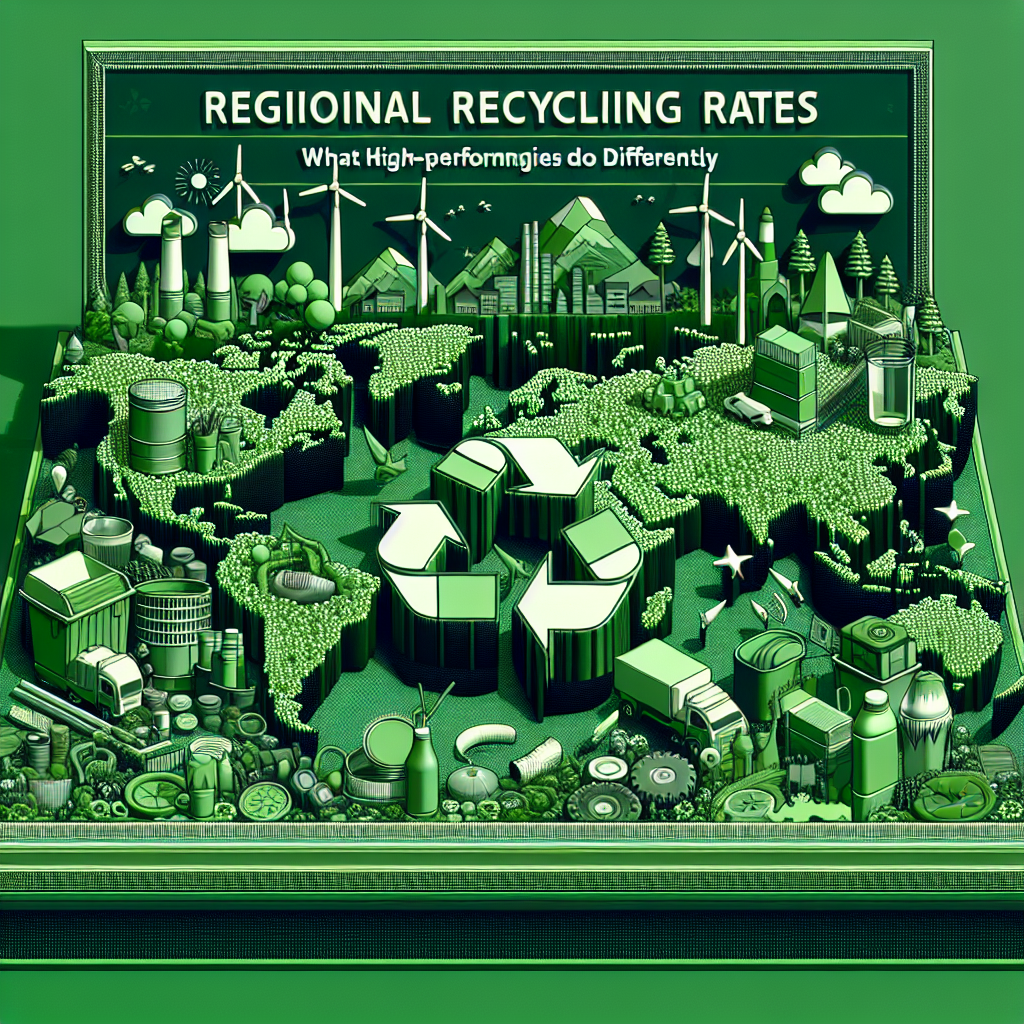Blog Ecobraz Eigre

"Regional recycling rates: what high-performing countries do differently"
Introduction
Countries' high performance in regional recycling rates is the result of consistent public policies, adequate infrastructure and effective social engagement. This article analyzes practices adopted by top-performing countries, providing technical insights for decision-makers in ESG, EHS, Procurement, IT and Legal areas.
Rigorous Legislation and Regulation
Countries with high recycling rates base their performance on clear and rigorous legislation. In Brazil, the National Solid Waste Policy - PNRS (Law No. 12.305/2010) regulates the integrated management and environmentally appropriate handling of solid waste. Article 33 of the PNRS highlights shared responsibility for the life cycle of products, which is essential to boost regional recycling.
Installation and Management of Adequate Infrastructure
Efficient infrastructure for selective collection, sorting and final disposal is a common feature of high-performing countries. The implementation of organized regional systems makes it possible to increase operational efficiency and reduce losses during the process. CETESB (cetesb.sp.gov.br) demonstrates that continuous investment in sorting plants and recycling centers is a vector for success in these indicators.
Economic Incentives and Zero Waste Policies
Policies that economically incentivize recycling, such as subsidies, tax benefits and charges for inadequate disposal, change habits and processes. Practical examples show that the adoption of regional targets and transparent monitoring contribute to the formation of a more robust circular economy. SINIR (sinir.gov.br) presents guidelines and goals that guide these processes in Brazil.
Environmental Education and Social Engagement
Ongoing environmental education programs and awareness campaigns promote the adherence of the population and the productive sectors. Social participation is decisive for the correct segregation of waste, a key element in increasing regional recycling rates. Manuals and educational materials made available by official bodies help to qualify local processes.
Electronic Waste Management
The management of electronic waste is a growing challenge, requiring specific solutions. Qualified e-waste collection is a differentiator for regional performance, reducing environmental impacts and promoting the recovery of valuable materials. For specialized scheduling, we recommend visiting e-waste collection.
Safe Disposal of Media and Hard Drives
Safe disposal of storage media such as hard drives ensures data protection and legal compliance, as well as contributing to responsible recycling. Specialized sanitization services protect sensitive information and promote correct disposal for recycling. Appointments can be made at hard drive sanitization.
Data Monitoring and Transparency
Systematic control of recycling rates requires advanced monitoring systems, ensuring transparency and continuous improvement. Making these indicators publicly available strengthens the accountability of regional managers. Digital integration and data analysis are practices employed to maximize results.
Conclusion
Countries that achieve high regional recycling rates implement rigorous policies, adequate infrastructure, economic incentives, environmental education, specialized e-waste management and transparent monitoring in an integrated manner. Decision-makers in the areas of ESG, EHS, Procurement, IT and Legal can adopt these practices to promote a sustainable cycle of waste management and legal compliance.

Deixe um comentário
O seu endereço de e-mail não será publicado. Campos obrigatórios são marcados com *